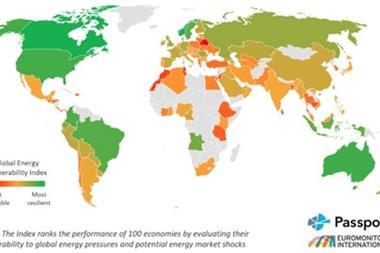The National Security Review says terrorism and cyber war are top priorities
The UK government has outlined the main threats to the UK’s national security.
As part of the National Security Review, Britain conducted its first ever National Security Risk Assessment, which assesses and prioritises all the major international and domestic threats (this is due to be reviewed every two years).
Top of the priority list in terms of risk likelihood and impact are:
>>International terrorism, including chemical, biological, radiological or nuclear attack by terrorists
>>Hostile attacks on UK cyberspace by hostile states or large scale cyber crime
>>A major natural hazard, such as severe coastal flooding or an influenza pandemic
>>An international military crisis
According to the security review: “Government, the private sector and citizens are under sustained cyber attack today, from both hostile states and criminals. They are stealing our intellectual property, sensitive commercial and government information, and even our identities in order to defraud individuals, organisations and the Government.”
In the future, unless action is taken, this threat could become even worse and the Olympics could be an attractive target for cyber criminals. “Beijing experienced 12m cyber attacks per day during the 2008 games,” noted the review.
Cyber-crime is estimated to cost as much as $1 trillion per year globally. And major companies are increasingly anxious about the impact cybercrime has on their bottom line and the resilience of the networks upon which commerce relies.
During the cold war Britain’s main threat was from nuclear attack but today the risks are no longer so predicatable, warned the government. “International terrorism is still our principal current national security threat. But over the next 20 years, we may face security threats from a range of sources: rather than having one clear type of threat around which to organise our planning.”
Current threats
Britain faces a “real and pressing threat from international terrorism”, claimed the security review. “Al Qaeda remains the most potent terrorist threat to the UK. The current national threat level is severe, which means an attack is highly likely.
However the risk picture is likely to become increasingly diverse, it said. “No single risk will dominate.”
Organised crime is another of the main risks currently affecting people in Britain. According to estimates there are around 38,000 individuals involved in organised crime affecting the UK, costing between £20bn and £40bn every year.
And while there’s not currently a major state military threat some countries are trying to gain advantage over Britain via “hostile espionage activity or cyber attack”.
“The revolution in global communications and increased movement of people, goods and ideas has also enabled the use of cyberspace as a means of espionage.”
Meanwhile, the government said that globalisation makes it much harder for the UK to isolate itself from international economic or geopolitical shocks.
Rise of emerging powers
“The balance of geopolitical power will gradually change over the coming decades,” according to the security review. A key feature of this change will be the rise of China and India as global powers alongside the continuing economic development and increasing influence of Latin America and the Gulf.
Environmental factors are also predicted to grow in importance. “The physical ffects of climate change are likely to become increasingly significant as a ‘risk multiplier’, exacerbating existing tensions around the world.”
Demographics
The world’s population is booming. UN projections suggest it will reach 9.2bn by 2050, compared to 6.9bn now. “Poor infrastructure, political exclusion and unemployment, combined with population and resource pressures, caused in part by urbanisation, will increase the risk of instability and conflict,” according to the government’s analysis.
Furthermore the advantage that the West has traditionally enjoyed in technology is likely to be eroded over time. The government highlighted in particular the effect over the next two decades of “game-changing technologies” such as artificial intelligence, advanced web applications, and quantum computing.
What they say?
The Prime Minister told Parliament:
“There is no cut whatsoever in the support for our forces in Afghanistan… Furthermore, every time the chiefs of defence staff have advised me that a particular change might have implications for our operations in Afghanistan, either now or in the years to come, I have heeded that advice.
“In fact, we have been and will be providing for our brave forces in Afghanistan: more equipment to counter the threat from IEDs; more protected vehicles like the warthog heavy protection vehicle which will be out there by the end of the year; more surveillance capability, including unmanned aircraft systems; and crucially, at last, the right level of helicopter capability.”
Defence Secretary Dr Liam Fox said:
“The frontline has been protected because Afghanistan is the Government’s top priority.
“Tough decisions are required to reconfigure our Armed Forces to confront future threats whilst we also tackle the £38bn deficit that has accumulated in the 12 years since the last Defence Review. The Ministry of Defence must become as effective and as efficient as possible. Lord Levene will help me deliver radical reform to streamline the Department.”
Chief of Defence Staff, Air Chief Marshal, Sir Jock Stirrup said:
“The challenging financial environment has meant that we have confronted some difficult choices in this Review. Our first priority has been to maintain the focus on Defence’s main effort in Afghanistan, and to ensure that we continue to deliver the necessary resources to that campaign. Beyond this, we face an uncertain future, so we have sought to maximise the agility and adaptability of our Armed Forces.
“That is partly about equipment, where we have had to take some tough decisions; but it is mostly about our people, who have always given us our winning edge. Despite some uncomfortable times ahead, recruiting and retaining people of the right talent, commitment and courage will be key to our future success.”



















